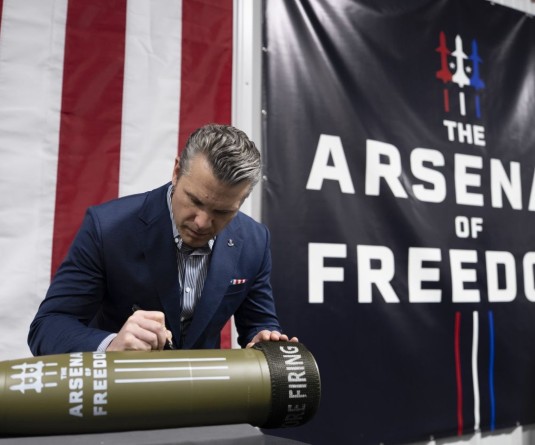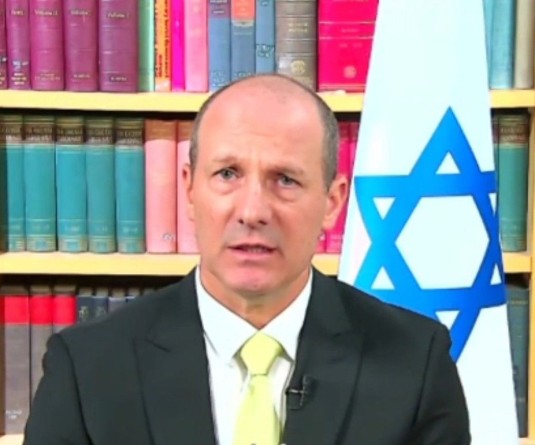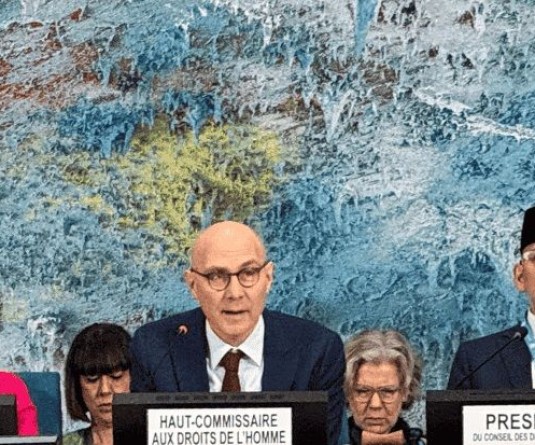Hong Kong Chief Executive Carrie Lam, wearing a face mask following the coronavirus disease (COVID-19) outbreak, holds a news conference in Beijing, China on June 3, 2020. (REUTERS File Photo)
HONG KONG, June 16 (Reuters): Hong Kong leader Carrie Lam on Tuesday urged opponents of Beijing's plan to impose national security legislation in the financial hub to stop "smearing" the effort, saying those who did were "the enemy of the people".
Beijing last month announced a plan to introduce legislation in Hong Kong to tackle secession, subversion, terrorism and foreign interference. The law could see Chinese security agencies set up bases in the city for the first time.
Critics see the law as the most serious threat to a "one country, two systems" formula, agreed when the former British colony returned to Chinese rule in 1997 to protect its freedoms and role as a global financial centre.
The Chinese government and Lam's Beijing-backed city administration say the law will not curtail freedoms and will only target a small number of "troublemakers" and help bring stability after a year of anti-government protests.
"I urge opponents who still use the usual tactics to demonize and smear the work to stop because by doing this they become the enemy of the Hong Kong people," Lam said before a cabinet meeting, referring to the legislation.
"The vast majority want to restore stability, and have safety, satisfaction and employment."
The government has mounted a campaign to rally public support for the legislation, with billboards, a booklet with questions and answers and a video of Lam defending the law "in the public interest".
In the video, posted on the government's website, Lam decried a "terrorist threat" against a "traumatized" city, saying advocates of independence were "colluding with foreign forces" and undermining security.
"Hong Kong has become a gaping hole in national security, and our city's prosperity and stability are at risk," said Lam as she stood flanked by the Chinese and Hong Kong flags, the first bigger than the second.
Only a few protesters have been calling for the city's independence, a suggestion that is anathema to China.
Another government clip posted online shows Hong Kong as a dot that is part of greater China on a map made up of many dots, with the message: "Without a country, there is no family" and "Upholding national security, duty of every citizen".
BIGGEST MARCH ANNIVERSARY
Lam' s latest defence of the law came a year after Hong Kong's biggest ever demonstration, when about 2 million people, according to organisers, marched against another bill the city wanted to introduce that would have allowed extraditions to mainland China.
Critics saw that bill as a threat to judicial independence and although it was later withdrawn, protests broadened into a campaign for greater democracy and clashes with police intensified.
This year, the coronavirus outbreak brought a lull in protests but they have resumed since Beijing announced the plan for the security law, which has been widely criticised within the diplomatic, legal and business communities even though few details of it have been released.
Riot police showed up near a downtown park on Tuesday and deployed a water cannon truck. Calls had been issued online for a rally there it did not materialise.
Instead, dozens of people chanted pro-democracy slogans in a shopping mall.
Later on Tuesday, Lam's cabinet eased a coronavirus curb on gatherings saying up to 50 people could now meet, from eight.
The restriction has angered democracy activists, with police citing the coronavirus in rejecting applications for rallies. The government says the restriction has no political motive.
While borders remain almost fully closed, life in Hong Kong has largely returned to normal, with trains and busses often jam-packed, workers back in offices and drinkers back in pubs.






